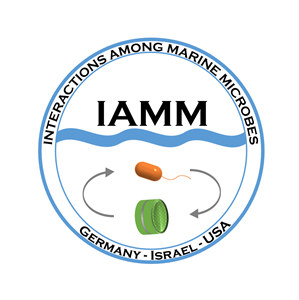Interactions Among Marine Microbes
Project Overview
The oceans are teeming with microbial life, which impacts global biogeochemistry, climate and human health. “-Omics” methods enable us to identify “who is there” and their genetic potential, but understanding how these organisms interact in nature and how they affect biogeochemical processes remains a major open challenge. A crucial component of this puzzle, at the heart of the cycling of nutrients in the biosphere, is the coupling between organisms that fix carbon using solar energy (phytoplankton) and microbes that rely on organic carbon for energy and growth (heterotrophs). The diversity of microbial species and the richness of their metabolism make the problem of predicting how each pair of species will interact impossible to address using traditional approaches. This project will tackle this challenge through a tightly integrated combination of genome scale modeling and laboratory experiments, to identify genomic traits dictating how environmentally-relevant microbes interact. Our approach, will provide a critical stepping-stone towards predicting how marine microbial systems will evolve in a changing world.
Project Duration:
January 2016 – March 2020
Funding:
Human Frontier Science Program (HFSP)
Associated Institutions:
Leibniz-Institute of Freshwater Ecology and Inland Fisheries
Leibniz-Institute for Baltic Sea Research Warnemünde
https://www.io-warnemuende.de/en_index.html
University of Haifa
http://www.haifa.ac.il/index.php/en/home-eng
Boston University
